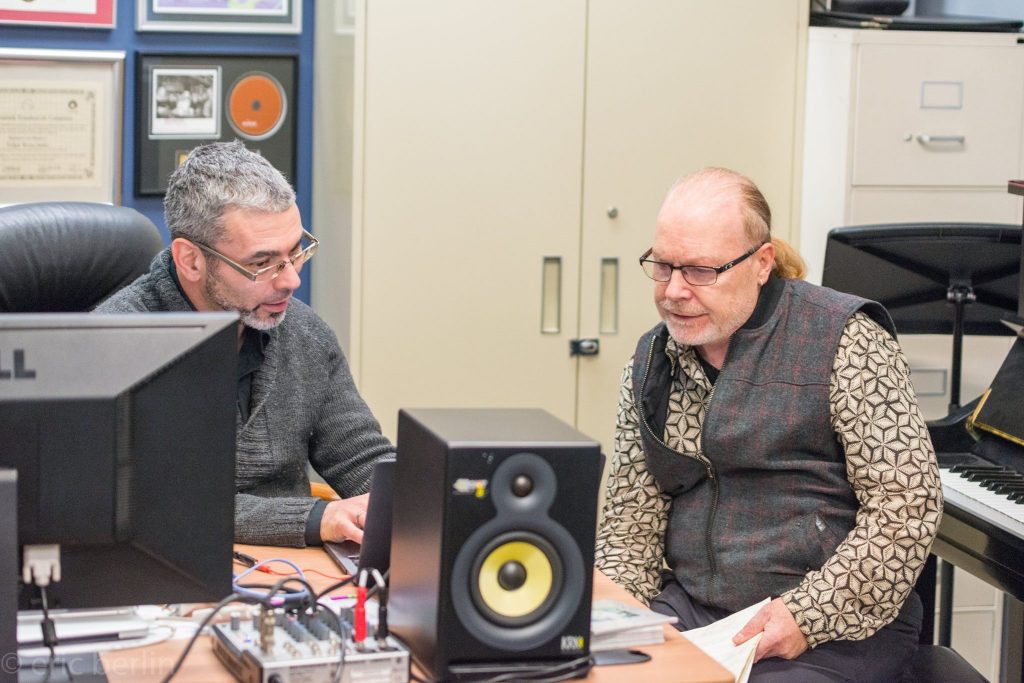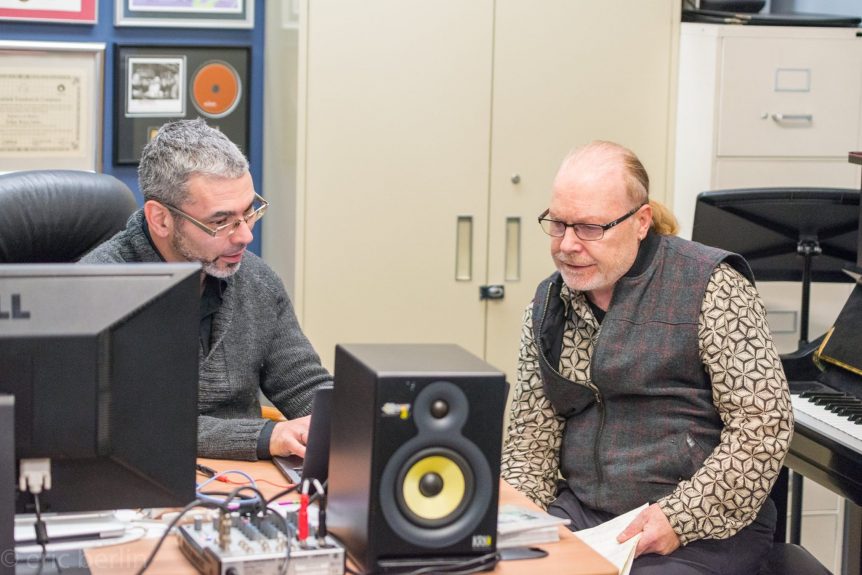
According to Jazz Department Director Philippe Crettien, jazz musicians must always keep learning in order to remain fluent in the evolving art form. “Jazz is a music of convening influences,” he says. “It’s a vibrant, living thing, so you have to stay on top of it if you want to be relevant.” Crettien models this commitment to continuing education, having recently completed a master’s degree in jazz composition after 20 years of teaching. The challenging two years he spent composing for choral, orchestra, and jazz ensembles at UMass Amherst pushed him outside of his comfort zone and enhanced his already excellent instruction.
He says that curiosity is a shared trait among his 11 colleagues in the department, who are also professional musicians. Guitarist Patrick Mottaz, for instance, has spent the past three years exploring the value of technology in jazz education. He says he has found “a whole new teaching toolbox” in audio apps such as GarageBand and Logic, which he uses to teach music theory concepts, help students record original compositions, and demonstrate his own songs.
Even as jazz faculty such as Crettien and Mottaz have consistently worked hard to acquire knowledge that elevates their teaching, the past year has produced a particularly urgent demand for new skills. The jazz department has risen to this challenge, working together to navigate the unexpected transitions to remote, hybrid, and socially distanced in-person teaching.
From the start of the school closing last spring, the jazz department—whose members are skilled in the art of improvising—adapted quickly and successfully to remote teaching. Faculty members immediately transferred their lessons to Zoom without missing a session. Next, they tackled the next challenge of continuing live musical collaboration, described by Crettien as “the whole thrill and challenge of jazz.”
After discovering that the SoundJack platform allows for virtual playing among ensemble members performing up to 500 miles apart, jazz faculty downloaded the software and began to experiment. They found it to be a “game changer,” in Crettien’s words. Trombonist Clayton DeWalt worked tirelessly to understand the technology’s intricacies through research and trial and error. He also relied upon colleagues throughout the process, exchanging ideas and gathering for trial calls. DeWalt has gained a wealth of knowledge, which he shares with the community via video tutorials. “I just think about what I would want to know if I were learning for the first time. You learn so much more about it yourself as you break it down into steps for others,” he says. In this case, as with Crettien’s graduate studies and Mottaz’s use of technology, love of learning goes hand-in-hand with leadership in COVID-era education.
When the world turned upside down, the RSC Jazz Department led with resilience. As a team that is devoted to a growing and changing genre, the department was prepared to respond creatively to the obstacles presented by the pandemic.

